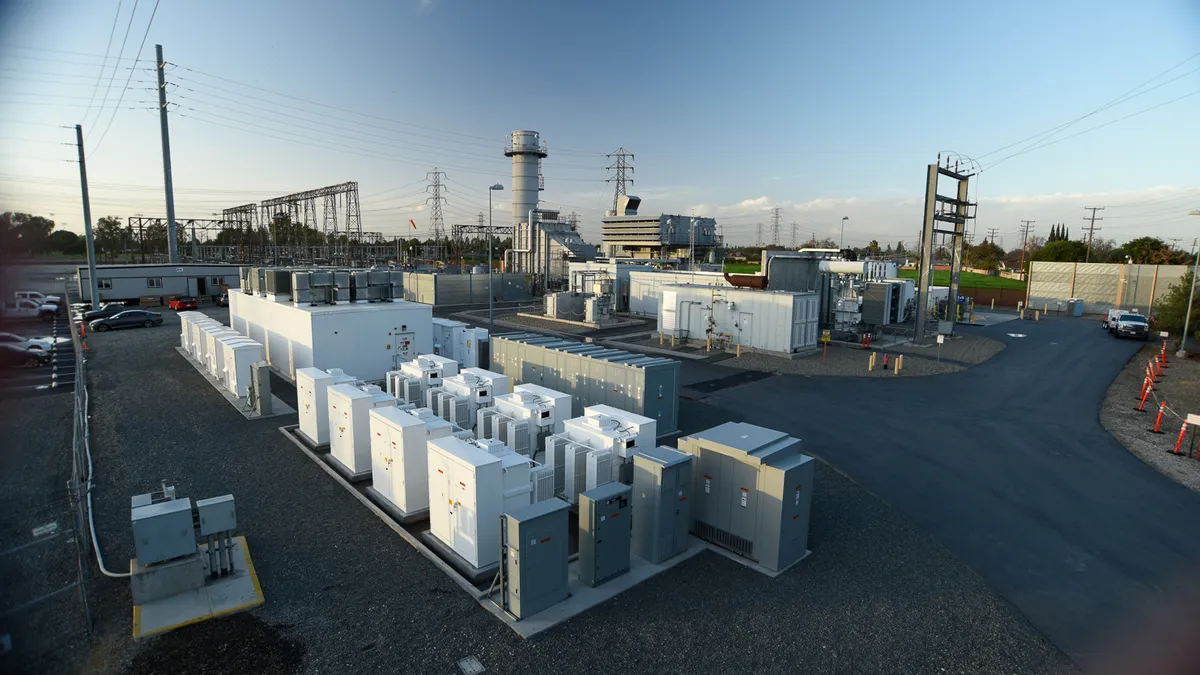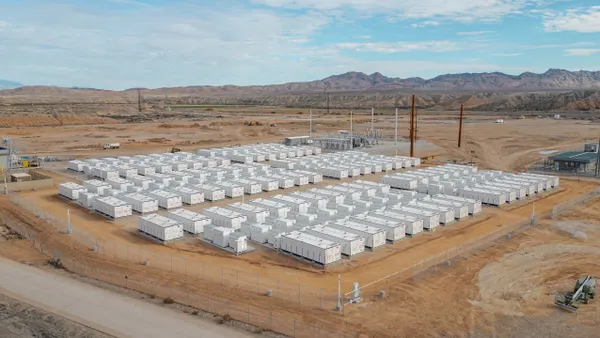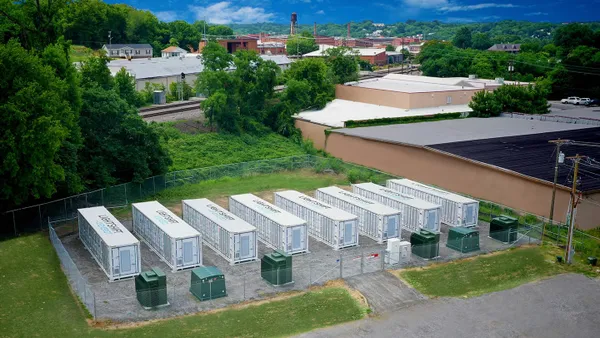Dive Brief:
-
Breakthrough Energy Ventures (BEV), the $1 billion venture capital fund led by Bill Gates, has chosen two energy storage startups as two of its initial investments.
-
BEV, along with Evok Innovations, has committed $6.4 million to Quidnet Energy, which is developing a technology that pumps water into shale formations to store energy.
- With Prelude Ventures and other investors, BEV has also committed $9 million to Form Energy, which is developing a sulfur-based flow battery.
Dive Insight:
Energy storage has caught the attention of some big investors. BEV’s founders, in addition to Bill Gates, include notable tech entrepreneurs such as Amazon's Jeff Bezos, Facebook's Mark Zuckerberg, LinkedIn's Reid Hoffman and Alibaba's Jack Ma.
The fund, founded in 2016, has identified energy storage as one of its five key investment target areas.
A recent report by Mercom Capital Group found that battery storage dominated funding and mergers and acquisitions activity in the first quarter for the battery storage, smart grid and energy efficiency sector. The sector raised $472 million in the first quarter, of which $300 million was dedicated to energy storage.
Battery storage companies raised $299 million of venture capital funding, including private equity and corporate venture capital, in the first quarter, according to the Mercom report. That compares with $151 million raised in the fourth quarter and $58 million raised in the first quarter of 2017.
"This was a pretty strong quarter for energy storage, but it is difficult to say when one quarter goes up if it is a trend,” Raj Prabhu, co-founder and CEO of Mercom, told Utility Dive. "When the second quarter [results] come out, we should be able to tell."
Prabhu also noted that VC funding does not always reflect the actual growth in the energy storage sector. Most VC funding goes to startup companies. However, there are a lot of big companies involved in energy storage that don’t raise venture capital. Instead, they rely on their own funding sources.
But BEV seems to be betting that some startups will have a big effect in energy storage.
Both of BEV’s investments are focused on grid-scale energy storage. Quidnet calls its technology "subsurface pumped hydro." Unlike traditional pumped storage, Quidnet’s technology does not require reservoirs at a different altitude. Instead, Quidnet pumps water into mature oil and gas wells. The pressurized water stores energy underground until it is needed. Then the water is released and run through a conventional hydro turbine to produce electricity.
Form Energy is looking to develop a long duration flow battery that would cost as little as $10/kWh, significantly lower than the roughly $200/kWh prevailing cost of lithium-ion batteries. Form is looking at developing new chemistries, including one based on sulfur, to create such a battery.
That long duration goal seems well matched to BEV’s investment philosophy of providing patient capital with an investment horizon of up to 20 years.














